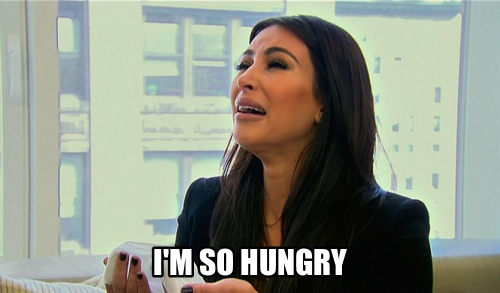
Hangry isn’t a made up emotion, according to science
We all know a person in our lives that goes from happy and carefree to breathing fire and rage when they are hungry.
If you don’t know that person, then FYI, it is probably you.
So whether or not you are the person people avoid when you go into Incredible hungry hulk mode, there is a scientific explanation behind it.

The word “hanger” has been thrown around and slapped as a label to those who throw tantrums that could rival toddlers and, given to those whose irritability grows with every tummy rumble. So much so, that it was added to the dictionary as an official word last year.
However, rejoice hangry individuals! Our jokes have been in vain as evidence suggests that there is a genuine connection between hunger and anger.

A Lecturer in Nutrition and Dietetics at King’s College London, Sophie Medlin, explained their findings surrounding hanger.
“We’ve long recognised that hunger leads to irritability in science,” she said during a Women’s Hour interview on BBC Radio 4.
“But the wonderful world of social media has merged the two words for us and now we know it as ‘hanger’. When our blood sugars drop, cortisol and adrenaline rise up in our bodies – our fight or flight hormones.”
These hormones are responsible for triggering a release of small, protein-like molecules called neuropeptides, which impacts the way the brain works.

“The ones that trigger for hunger are the same ones that trigger for anger and rage and impulsive type behaviours,” Medlin says. “So that’s why you get that sort of same response.”
The research found that hunger causes an increase in neuropeptide Y, which is interconnected to feelings of aggression.
It offers the explanation to why ‘hanger’ can affect your emotions when it comes to your nearest and dearest, who have to endure the outburst.
A study from 2014 found that low glucose levels relates to greater aggression in married couples. Which led to scientists to advise couples to resolve challenging issues on a full stomach, rather than an empty one.
Additionally, another study found that 62% of people make the wrong decisions when they’re ‘hangry’.
So, how do combat this hanger and keep it under control?
“It depends on how long it’s going to be until your next meal,” says Medlin. “Ideally you want something that’s going to bring your blood sugars up a little bit and also maintain them there. So a sort of savoury carbohydrate type snack would be the best thing to have.”
We will let you decide if you should be more empathetic towards those who are hangry, or you could remind them they’re probably making the wrong decision.






